Intransigent Abe shuts door to island talks
Updated: 2013-07-04 07:56
By Cai Hong (China Daily)
|
||||||||
While many people were expecting relations between China and Japan to take a turn for the better, Japanese Prime Minister Shinzo Abe has shut the door on the possibility. During a debate with the leaders of eight Japanese political parties on June 28, he said he "refused the condition set by China" for a summit with the Chinese side.
It is not difficult to guess that the dispute over the islands in the East China Sea, which are known as the Diaoyu Islands in China and the Senkaku Islands in Japan, is the issue involved. China expects Japan to return to the shared recognition that there is a territorial dispute over the islets.
Abe knows that the leaders of the two countries agreed to shelve the dispute so that they could normalize the diplomatic relations in 1972. However, he and his government have disavowed that consensus reached by past leaders, and they insist that no territorial dispute exists between the two countries.
Yet the dispute was brought into stark relief last year when five of the eight islets were "nationalized" by then ruling Democratic Party of Japan for its own political ends. China warned Japan many times of the consequences of this act, but its words fell on deaf ears.
As a result, Chinese and Japanese leaders have not met since May 2012, when former Chinese premier Wen Jiabao talked with then Japanese prime minister Yoshihiko Noda in Beijing.
The Abe administration is sending mixed signals to China. Shotaro Yachi, a former vice-foreign minister and a long-time ally of Abe, quietly visited Beijing in mid-June, and the Abe administration confirmed that the territorial dispute over the islands was discussed. But it attacked former chief cabinet secretary Hiromu Nonaka when he admitted the two countries had agreed to shelve the dispute.
The islands are being used by Japan's political parties in their campaigns for the upper house election, which is slated for July 21.
In order to win over both China-haters and moderates, Abe's Liberal Democratic Party is showing two faces. It has taken a tough stance on the dispute, saying that it will not compromise and it is determined to protect Japan's "land, waters and airspace", presenting detailed policies on more effective control over the islands, including the permanent basing of public servants on them and strengthened surveillance, while at the same time it is proposing to push forward relations with China.
It proposes to safeguard Japan's "sovereignty" over the islands based on the position that there is no dispute over sovereignty. But it also says it will try to make communication on the maritime issues between the two countries possible.
Meanwhile, the other parties have laid out their positions. New Komeito has backtracked on its earlier acknowledgement that there is a dispute over the islands and it is best left to future generations to resolve.
The Japanese Communist Party asserts that Japan should admit the territorial dispute with China and try to find a solution through diplomatic talks. The Socialist Democratic Party has also called for dialogue on the issue.
Meeting with Japan's former prime minister, Yukio Hatoyama, in Beijing last week, Premier Li Keqiang said China and Japan have a heavy responsibility for the development of East Asia.
However, Japan's right-wing politicians have alienated other countries in the region with their comments.
Significantly, South Korean President Park Geun-hye made China her second overseas destination after taking office, a break from the practice of visiting Japan after a visit to the United States.
Japan's Kyodo News Agency said Japan is isolated, warning that Park's attitude toward Japan in terms of historical understanding is so solemn, it is beyond Japan's imagination.
However, Japan's problem is far bigger than this. China is serious about protecting its sovereignty over the Diaoyu Islands, but it honors the agreement reached by previous Japanese leaders to shelve the issue.
It was diplomatically inappropriate for Abe to try and display toughness ahead of the upper house election by criticizing China for asking for Japan to adhere to a consensus already reached between the two countries.
Abe has made the dispute a tool to gain an advantage for his party in the election when it should be dealt with through diplomatic channels. With Japan's intransigence, the door to a solution has slammed shut again.
The author is China Daily's Tokyo bureau chief. E-mail: caihong@chinadaily.com.cn
(China Daily USA 07/04/2013 page 11)
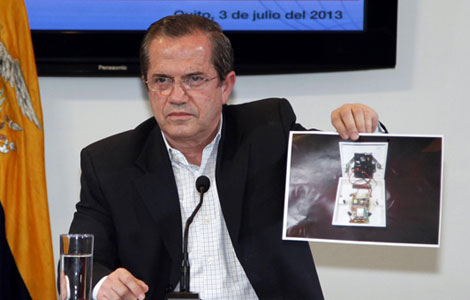
 Ecuador finds spy mic for Assange meeting
Ecuador finds spy mic for Assange meeting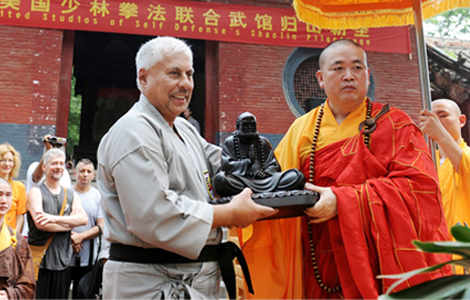
 US martial artists arrive at Shaolin Temple
US martial artists arrive at Shaolin Temple
 July 4 in Prescott: Balance of grief, patriotism
July 4 in Prescott: Balance of grief, patriotism
 Jubilant crowds celebrate after Mursi overthrown
Jubilant crowds celebrate after Mursi overthrown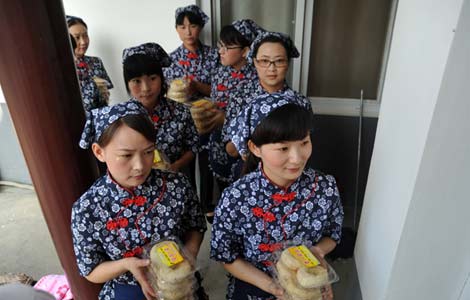
 Growth slowing for services
Growth slowing for services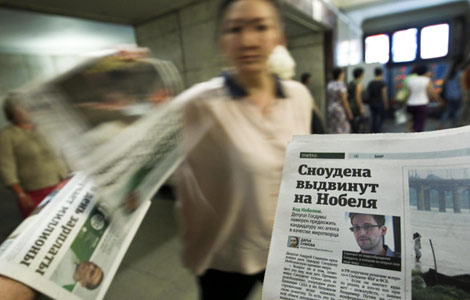
 Venezuela eyed as Snowden seeks asylum
Venezuela eyed as Snowden seeks asylum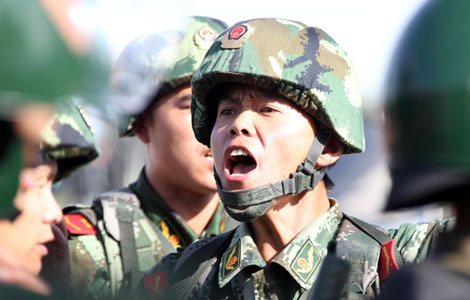
 Anti-terror drill staged in Xinjiang
Anti-terror drill staged in Xinjiang
 Memorial service held for 19 Arizona firefighters
Memorial service held for 19 Arizona firefighters
Most Viewed
Editor's Picks

|

|

|

|

|

|
Today's Top News
US welcomes China's engagement in Africa
Data show shifts in US, China economies
Obama, Merkel agree talks on surveillance program
Filipino executed for drug trafficking
Obama orders US to review aid to Egypt
Snowden still in Moscow
China urges more efficient uses of fiscal funds
Egypt army topples president Morsi
US Weekly

|

|






